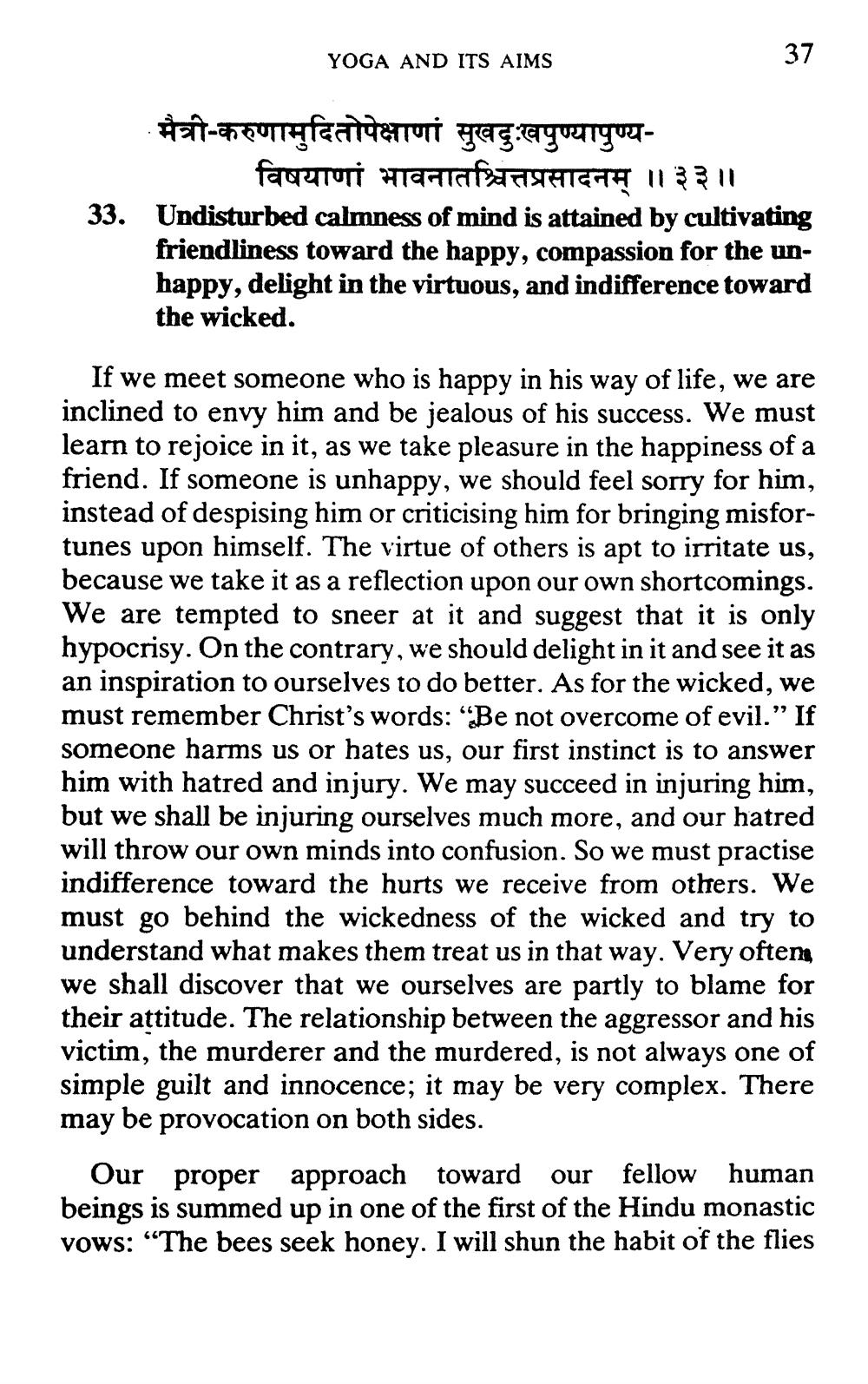________________
YOGA AND ITS AIMS
37
मैत्री-करुणामुदितोपेक्षाणां सुखदुःखपुण्यापुण्य
faQUTTİ HTCHUATTATGGA 113311 33. Undisturbed calmness of mind is attained by cultivating
friendliness toward the happy, compassion for the unhappy, delight in the virtuous, and indifference toward the wicked.
If we meet someone who is happy in his way of life, we are inclined to envy him and be jealous of his success. We must learn to rejoice in it, as we take pleasure in the happiness of a friend. If someone is unhappy, we should feel sorry for him, instead of despising him or criticising him for bringing misfortunes upon himself. The virtue of others is apt to irritate us, because we take it as a reflection upon our own shortcomings. We are tempted to sneer at it and suggest that it is only hypocrisy. On the contrary, we should delight in it and see it as an inspiration to ourselves to do better. As for the wicked, we must remember Christ's words: "Be not overcome of evil.” If someone harms us or hates us, our first instinct is to answer him with hatred and injury. We may succeed in injuring him, but we shall be injuring ourselves much more, and our hatred will throw our own minds into confusion. So we must practise indifference toward the hurts we receive from others. We must go behind the wickedness of the wicked and try to understand what makes them treat us in that way. Very often we shall discover that we ourselves are partly to blame for their attitude. The relationship between the aggressor and his victim, the murderer and the murdered, is not always one of simple guilt and innocence; it may be very complex. There may be provocation on both sides.
Our proper approach toward our fellow human beings is summed up in one of the first of the Hindu monastic vows: “The bees seek honey. I will shun the habit of the flies




